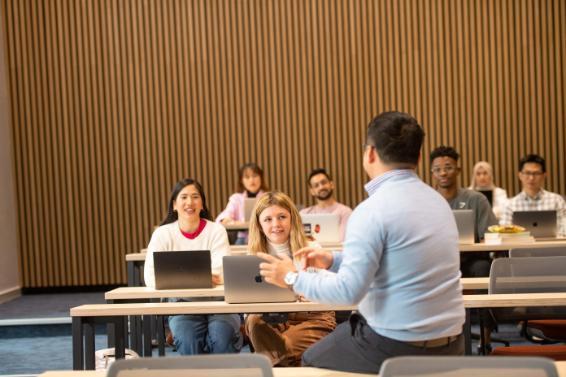Spring into Methods

Workshop Proposals
The Scottish Graduate School for Arts & Humanities (SGSAH), in partnership with the Scottish Graduate School of Social Science (SGSSS), invited proposals for Spring into Methods 2026.
The Spring into Methods programme brings together arts, humanities, social science, and other doctoral researchers from across Scotland to offer sessions providing an in-depth approach to learning a specific research method for up to 15 hours.
Each year, SGSAH and SGSSS invite proposals from members of staff in any of the affiliated HEIs to provide this training which will be offered with our support. Whilst we hope and expect in-person training to be possible, we welcome proposals that are delivered online.
The application portal closed on 30th January 2026.
Applicants can expect to be notified of the outcome during the week commencing 16th February 2026.
If you have any queries regarding a submitted proposal, please contact admin@sgsah.ac.uk.
Addressing Grand Societal Challenges
These events should speak to societal challenges in one of these areas:-
- Communication, AI and new technologies;
- Environment, migration and demographic change;
- Governance and institutions;
- Peace, justice and strong institutions;
- Sustainable and thriving economies;
- Health, wellbeing and communities;
- Social inequalities; and
- Inclusive culture, heritage and creative practice.
They could also articulate the UN Sustainability Goals, and/or Scotland's National Performance Framework. These should take an exciting problem-solving approach and appeal to students across disciplinary divides. There are no specific requirements for the style of training, but we welcome proposals that develop students’ collaborative and team building skills, problem solving abilities, creative and solution-orientated thinking. We are keen to fund these events, and in some cases with an elevated budget in recognition of the additional resources that may be required for successful delivery.
Interdisciplinary Research Training
These events should focus on a method and be inclusive and relevant to students from across the Arts, Humanities and social sciences. Our emphasis is on interactive, interdisciplinary and innovative sessions that demonstrate both expertise in methods training and leadership to involve early career researchers in delivery.
Based on training needs analyses, we would welcome applications that can showcase:
- Creative/critical use of artificial intelligence;
- Use of archive materials;
- Building creative practice into research projects;
- Institutional ethnography; and
- Conducting Research with Communities.

